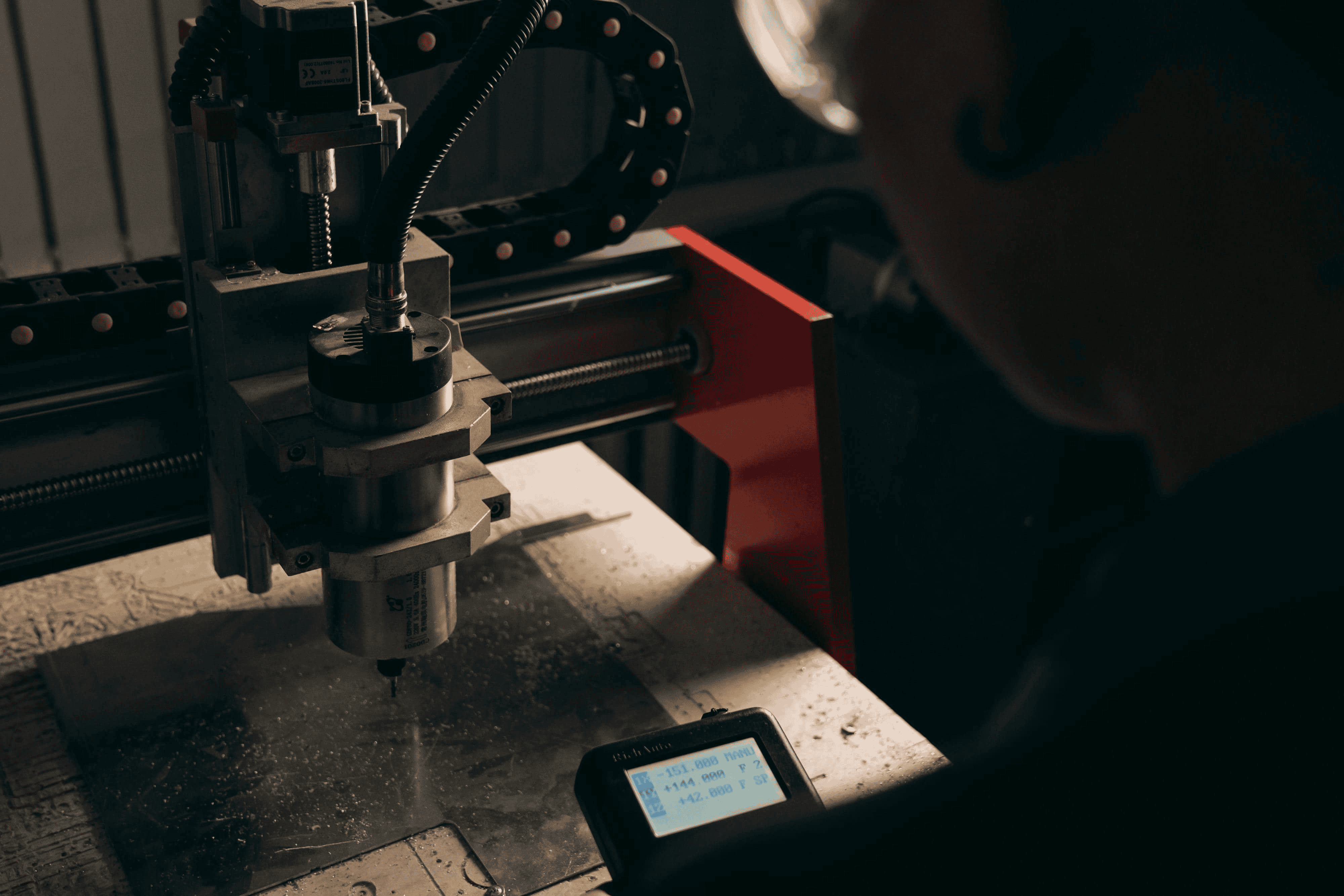Custom Fabrication

Aluminum custom fabrication of precision van components at OZK Customs in Fayetteville Arkansas
Aluminum custom fabrication transforms raw sheet, plate, or extrusion into parts and assemblies that meet a specific function. Success starts with the right alloy. Common choices include 5052 for tight bends and corrosion resistance, and 6061 for stiffness, machining, and structural brackets. Matching temper to the task matters because hardness and formability change with heat treatment.
Cutting is the first gate to accuracy. CNC routing produces clean edges on plate and sheet with minimal burr, while waterjet protects material temper and avoids heat affected zones. Plasma can be used for thicker sections when edge quality and tolerance targets allow. Clear kerf assumptions and hold down strategies keep parts true to the CAD model.
Forming follows. Press brake operators use the proper die set, bend deduction, and inside radius to avoid cracking. Aluminum prefers larger inside radii and thoughtful grain direction to reduce the chance of fatigue at the bend line. Consistent springback compensation is the difference between a box that fits and a box that binds.
Welding brings it together. TIG is the gold standard for thin aluminum due to arc control and clean bead appearance. Joint prep, oxide removal, and proper torch angle reduce porosity. Heat input is controlled with sequencing and fixturing to prevent distortion. For thicker parts, MIG can speed deposition when appearance is less critical.
Finishing protects the part and elevates the look. Anodizing adds corrosion resistance and a hard surface. Powder coat supplies color and durability. Mechanical finishing like brushing or bead blasting prepares surfaces for consistent coatings. Each finish requires specific edge breaks and hole masking planned early in design.
Dimensional integrity anchors everything. Stated tolerances should match function, not just a template title block. Flatness, parallelism, and true position are the checks that keep assemblies square. Good shops record in process measurements and final inspection data so parts repeat across runs.
Searching for custom metal fabrication near me is about matching capability to your design. Look for a portfolio that shows similar material thicknesses and part complexity. Ask how the team handles fixturing, heat management, and clamp strategies that reduce warp. Shops that document procedures deliver repeatable results and dependable lead times.
Communication should be clear from the first quote. Strong vendors confirm material grade, finish, critical dimensions, and revision control before cutting begins. They share accepted CAD formats and call out any geometry that risks tolerance drift. Straight answers on minimum order quantity and schedule prevent surprises mid build.
Bespoke metal fabrication is more than a buzzword. It describes one off or low volume builds that require problem solving, elegant joints, and clean fit to surrounding components. This is where precision brake work, controlled TIG welds, and smart hardware selection turn a drawing into an easy to service assembly.
Quality control is a practice, not a promise. Ask how the shop verifies angles after forming, measures hole patterns, and records critical dimensions. Confirm how finishing vendors mask threads and maintain coating thickness so parts still fit after paint.
A typical flow starts with discovery and a complete drawing package. Next comes CAM programming with proper tool paths, tabbing, and avoidance of cutter deflection. Prototype pieces validate bend allowances and hole patterns before you spin a full batch. When the design is locked, jigs and fixtures give you repeatability for production.
Cost drivers are predictable. Material grade, thickness, and sheet yield set the baseline. Part complexity, number of bends, and cumulative tolerance stack add labor. TIG time is real time, so long seams and cosmetic work affect quotes. Finishes like anodize or powder coat add cost and schedule days for prep and cure. Consolidating features and simplifying hardware can trim both.
Aluminum brings specific technical considerations. Cleanliness is critical because oxide melts at a higher temperature than the base metal. Shielding gas quality and consistent torch technique fight porosity. Distortion is managed with sequence planning, backstep welding, and solid fixturing. Threaded features in aluminum last longer with inserts like Helicoil or swaged rivet nuts.
Ready to turn research into results in Northwest Arkansas Your search for custom metal fab near me should end with a team that can plan, fabricate, and finish without drama. If you need aluminum brackets, interior structures, or mounting systems, our Fayetteville crew can help. Explore our custom fabrication capabilities, see detailed fabrication services, and learn why choose OZK for parts that fit first try. Whether you are building a fleet upfit or a single bespoke metal fabrication component, we design for manufacturability and deliver on schedule.
Fill out the form below to start a conversation with our Fayetteville team. Share your drawings, target tolerances, and finish needs, and we will provide a clear path from concept to first article to production.
We're happy to talk specs, fitment, or just bounce ideas around.
Let’s turn your drawings into parts that fit first try. Share your goals and timeline, and our Fayetteville team will quote, design, and fabricate with production‑level accuracy. From aluminum brackets to full structural assemblies, OZK Customs builds it right the first time. Start your project today.
ADDRESS:
6159 E Huntsville Rd, Fayetteville, AR 72701
PHONE:
(479) 326-9200
EMAIL:
info@ozkvans.com